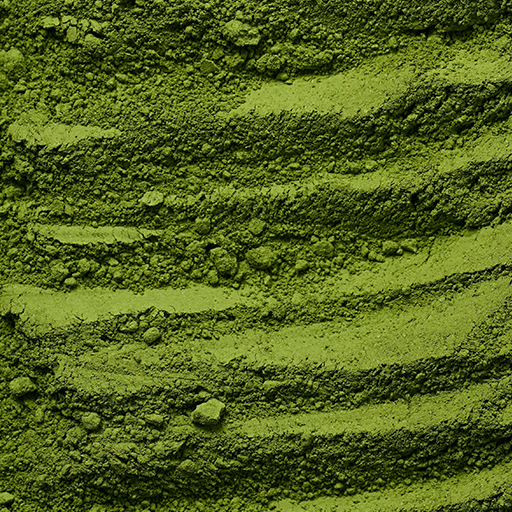
L-THEANINE
L-Theanine is a natural amino acid found in tea that supports calm, focused attention without the jitters associated with caffeine. When combined with caffeine, it enhances focus and cognitive performance while preventing the negative side-effects of caffeine.
L-THEANINE
L-Theanine is a popular nootropic many people don’t realize they regularly consume. It is naturally found in teas like black tea, oolong tea, and green tea, though in low amounts (typically <50mg per serving) [1, 2, 19]. L-Theanine is commonly combined with caffeine to increase cognitive abilities even further than either accomplish alone, while also helping to remove the negative side-effects of caffeine [3, 4, 8, 11]. Some people who never take caffeine due to jitters report that when they take L-Theanine & caffeine in combination they have no negative side effects but a significant increase in focus.
Evidence suggests L-Theanine supplementation shows improvements to different aspects of mood. For example, it shows reductions in stress & anxiety during stressful situations [5, 14], lowered depression ratings [7, 9], and overall calmness [12]. Consistent usage seems to have further long-term improvements to mood in adults who were chronically stressed, but otherwise healthy [9].
L-Theanine is sometimes taken alone at night to help improve sleep onset and quality [6, 7]. Due to it not causing drowsiness, it is safe to consume at any time of day.
How?
L-Theanine easily passes the blood-brain barrier to increase brain activity, specifically within the alpha-band frequency [17]. These alpha brain waves are associated with a more relaxed focus, whereas higher frequencies are the more anxiety induced focus and even lower frequencies are for sleeping & resting.
L-Theanine is a glutamate receptor inhibitor, meaning it reduces the activity of glutamate receptors in the brain [18]. Glutamate is an excitatory neurotransmitter that with too much activity can lead to overstimulation and anxiety. This mechanism of L-Theanine promotes relaxation and reduced stress without causing drowsiness.
Dosages of 100, 200, and 400 mg were tested against a placebo and found that with each 100 mg increase in consumption, a decrease in latency was observed in neural responses of task-relevant stimulus [10]. This decrease in latency is associated with improvements to attention.
Dosage
Most research uses 200 mg, but some explore lower/higher doses depending on their goal (athletic performance, cognitive function, relaxation). A 1:2 ratio of caffeine to L-Theanine has been found to give optimal cognitive improvements compared to taking either alone. ANOO Focus follows the best researched ratio & dosages by including 100 mg of caffeine and 200 mg of L-Theanine.
Typical commercial green tea has about 7.9 mg of L-Theanine in a standard cup [19]. That means to get 200 mg of L-Theanine from green tea, you’d have to drink 25+ cups! Supplementing L-Theanine can help provide the benefits of this natural ingredient at the scientifically researched dosages.
Benefits
- Improve attention, executive function, and memory [3, 4, 6, 7, 8, 10, 11, 15]
- Reduced stress & anxiety [5, 6, 7, 9, 11, 12, 14]
- Lowered rating of depression [7, 9]
- Faster reaction times [8, 15]
- Reduce mind-wandering [11]
- Increased amount of work [11]
- Improve sleep quality [6, 7, 13, 16]
- Greater alpha band activity in the brain [17]
References:
[1] https://pubmed.ncbi.nlm.nih.gov/35445053/
[2] https://pubmed.ncbi.nlm.nih.gov/27019564/
[3] https://pubmed.ncbi.nlm.nih.gov/18006208/
[4] https://pubmed.ncbi.nlm.nih.gov/23107346/
[5] https://pubmed.ncbi.nlm.nih.gov/31758301/
[6] https://pubmed.ncbi.nlm.nih.gov/31623400/
[7] https://pubmed.ncbi.nlm.nih.gov/27396868/
[8] https://pubmed.ncbi.nlm.nih.gov/37815006/
[9] https://pubmed.ncbi.nlm.nih.gov/35565828/
[10] https://pubmed.ncbi.nlm.nih.gov/32777998/
[11] https://pubmed.ncbi.nlm.nih.gov/35111479/
[12] https://pubmed.ncbi.nlm.nih.gov/34562208/
[13] https://pubmed.ncbi.nlm.nih.gov/22214254/
[14] https://pubmed.ncbi.nlm.nih.gov/16930802/
[15] https://pubmed.ncbi.nlm.nih.gov/33751906/
[16] https://pubmed.ncbi.nlm.nih.gov/25759004/
[17] https://pubmed.ncbi.nlm.nih.gov/17272967/
[18] https://pubmed.ncbi.nlm.nih.gov/12596867/
[19] https://doi.org/10.1016/j.foodchem.2010.08.071
